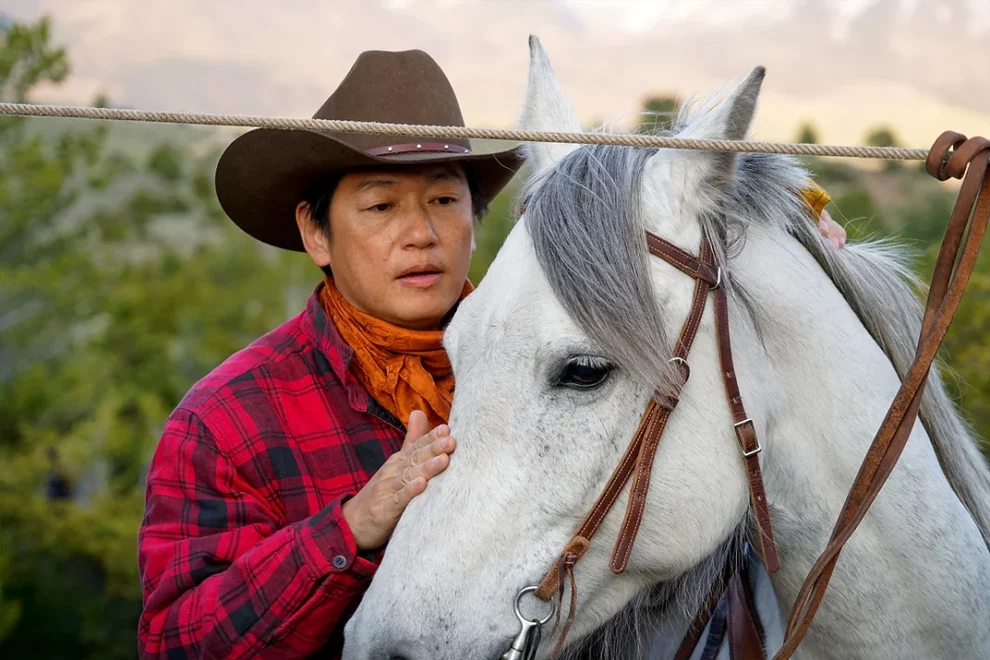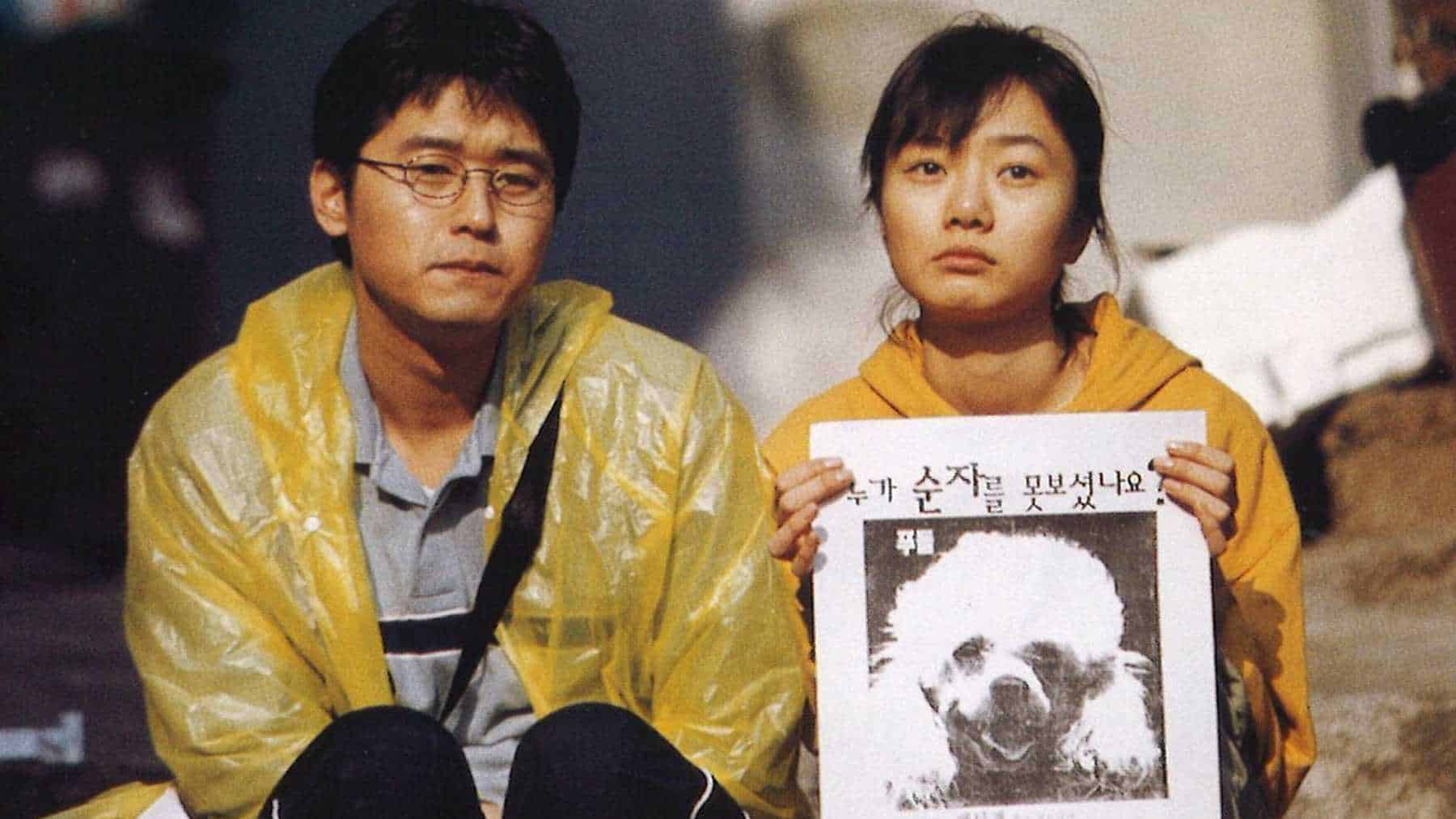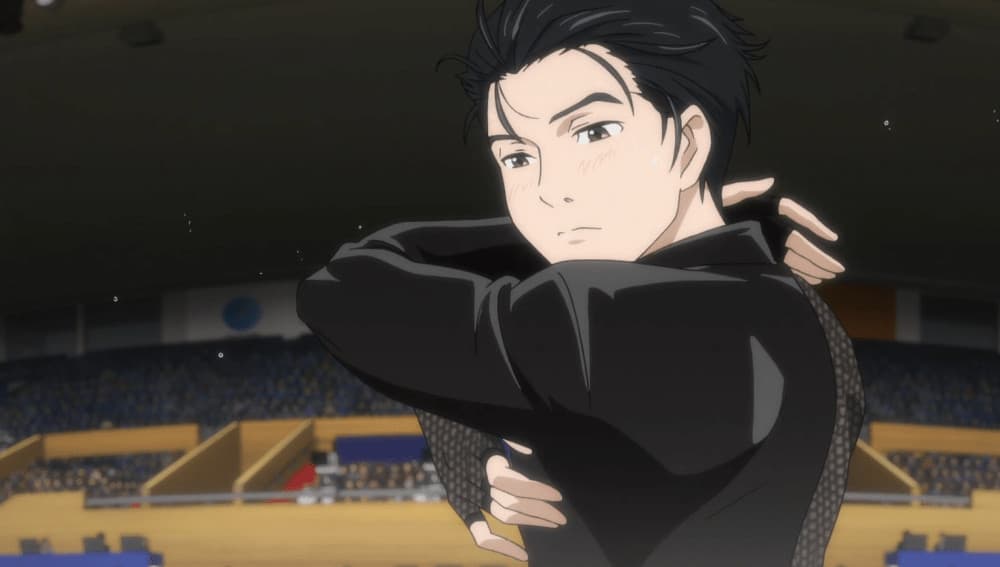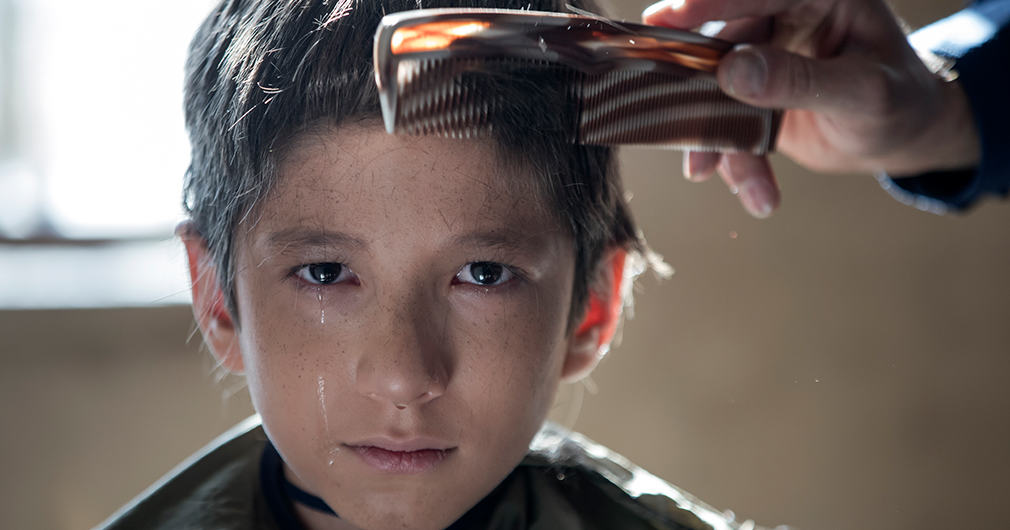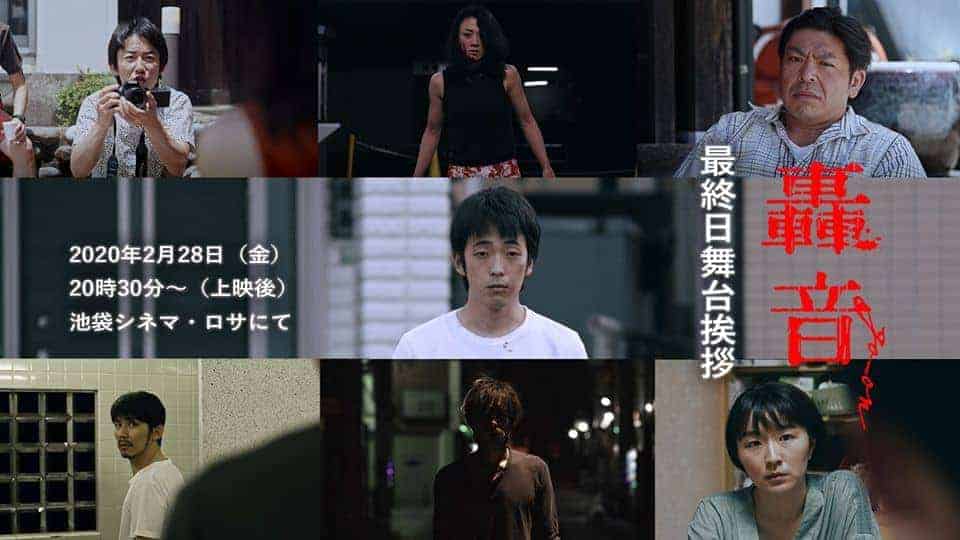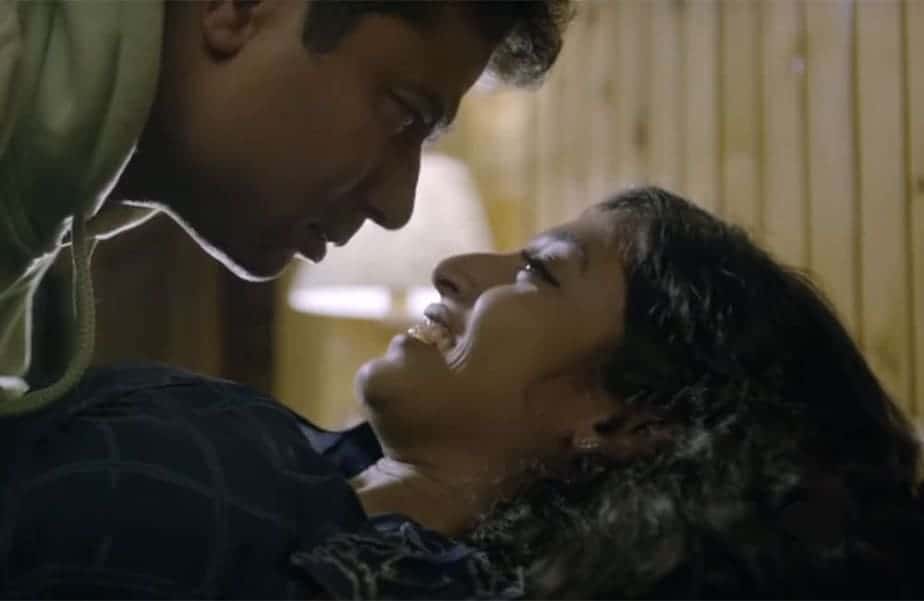Marc Marriot directs his first feature film, “Tokyo Cowboy,” a superb movie with a lot of heart that tells an uplifting fish-out-of-water story driven by cross-cultural interaction. The screenplay is a co-written effort by filmmaker Dave Boyle, and actress Ayako Fujitani, who also appears in the picture in a prominent role. Starring in what is his first international project is Arata Iura. “Tokyo Cowboy” would win “Best Narrative Feature” at the Tallgrass Film Festival.
Concerning the plot, businessman Hideki balances many priorities, from work-related practices to plans to settle down with his longtime girlfriend, Keiko, whom he also works with. For his latest project, he proposes to his bosses a trip to a profitless cattle ranch in Montana to try and turn the locale into a business asset. Upon approval, he flies there with spokesperson Wada to assist him on the work excursion. Yet, when his partner gets into an accident and is hospitalized, Hideki is left to fend for himself in Big Sky Country. Sadly, all his pitches to the locals backfire. When hope seems lost, he befriends one of the farmland workers named Javier, who slowly helps him adjust to this foreign setting, and through that, he begins to reflect on not just his overseas stay but also himself.
Check also this interview
A story of reflection in a foreign setting is perhaps familiar, but “Tokyo Cowboy” is anything but a monotonous rehash of narrative tropes. It's a refreshing meditative examination of self-discovery while immersed in culture shock, with an honest depiction of human vulnerability. Its characters feel real, and it helps that there isn't a black-and-white good vs. bad setup, as while there are conflicts here, there isn't a villain, just merely people trying to overcome their struggles while slowly bonding with each other. There's an earnest humanity conveyed through its prominent theme of self-discovery that is more than just questioning what someone does with their life but how they choose to spend it and interact with the people they associate with, professionally and personally. A calming atmosphere is woven while covering a variety of emotions that surely audiences have felt at some point, ranging from honesty and personal contemplation to embracing individuality while trying to grow from past mistakes and work towards a better future. It helps that everything is subtle in its delivery instead of ham-fisted and spoonfed to the audience.
The cross-cultural interaction in the film has a raw believability. Different lifestyles are depicted, as are spoken languages, but no one is ever portrayed in a mocking caricature fashion, just people who are unique from one another. The use of language is significant, with some moments of people speaking their native tongue with one another and others blending various languages. While many parts have subtitles, cleverly, some sections intentionally leave them out to help put viewers into the shoes of the characters within the moment. There's even challenging some of the more traditional expectations, including Hideki's journey becoming more personal as things progress. Through this, “Tokyo Cowboy” reminds everyone, regardless of differences, that we are all human, and immersing in the unique, diverse reality can bring people closer together and ignite motivation to strive to explore further what the world has to offer while reflecting on ourselves.
Additionally, the film can be quite funny. Too often, countless media trade in the realities that come with international travel for cheap laughs that amount to shallow, bad comedy. However, the screenplay steers away from that misguided path, instead enriching viewers with clever, low-key, and subtle humor. This amusement becomes funnier for those who understand traveling to an unfamiliar location, including contrasting wardrobes and available technology. There are amusing depictions of adaptation to contrasting cultural lifestyles, such as Hideki gradually becoming familiar with the countryside lifestyle.
A stellar cast helps make the characters feel genuine, likable, and relatable. Arata Iura is terrific here and adds believability to Hideki's emotional journey; one notable scene in which he breaks down at a party showcases the dramatic power he bears as an actor. The friendship he forms with Javier is earnest, greatly helped by Goya Robles's charisma, whose own personal story will also touch viewers. Playing Hideki's lover, Keiko, Ayako Fujitani excels in her part as a strong character with a soft side, and the romance between her and Iura is wonderfully done, much of which is conveyed through their facial expressions alone. Jun Kunimura gets some of the best laughs in film as Wada, whose overconfident antiques land him in trouble. In a more cliched script, the ranch owner Peg could have been depicted as a one-note antagonist, but instead, she is a cool, no-nonsense individual, greatly enhanced by Robin Weigert's acting. Even the more minor characters are memorable, such as the Japan-obsessed countryside inn desk clerk Cindy, charmingly portrayed by Scout Smith, who wants to learn more about the Japanese language and culture.
Location is a key piece of the narrative puzzle, so the production team wasted no effort making “Tokyo Cowboy” visually lavish. Cleverly, there's intended visual emphasis in the two contrasting primary locations. The modern setting of Japan is bright and lively, surrounded by technology, while, on the other end, the more reserved locale of Montana is laid back but still full of life, not just because of the locals and animals that inhabit it but also the surrounding beautiful nature, from the extensive fields to hovering mountains. In addition to Oscar Ignacio Jiménez's gorgeous cinematography, the colors are immaculate. The music composed by Chad Cannon is atmospheric and nice on the ears, as is the theme song “Tokyo Cowboy” performed by singer Mai Fujisawa.
“Tokyo Cowboy” is an endearing film from start to finish, balancing deadpan humor and subtle drama in its familiar yet satisfying story of self-discovery, greatly enhanced by good performances and clever writing. Its humorous depiction of culture shock thankfully never derails into a series of stereotypical vignettes, instead having a relatable believability, nor does its emotional sections ever feel manipulative, rather being touching in its warm depiction of human vulnerability. Everything is nicely held together through Marc Marriott's great direction and Dave Boyle and Ayako Fujitani's terrific screenplay.


